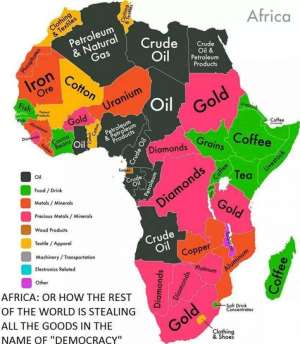
New research from the UCT Graduate School of Business (GSB) shows that Investing for impact (IFI) – the allocation of capital into investments that combine financial returns and positive impact on society and the environment – is on the rise in Africa's two largest economies.
The African Investing for Impact Barometer 2014, released by the Bertha Centre for Social Innovation and Entrepreneurship at the GSB shows that IFI, already an international trend, accounts for a significant part of the South African and Nigerian investment industry.
“We surveyed more than 1 200 funds managed by investors in South Africa and Nigeria,” says Dr Stephanie Giamporcaro, Research Director at the GSB and the academic brain behind the Barometer. “We found that almost half of them do speak about IFI.”
How big is the market?
South African and Nigerian funds committed to IFI are considerable – in the surveyed sample, South Africa IFI constitutes 41% of the funds (representing R717 billion, approx. US$ 67 billion). In Nigeria, IFI constitutes approximately 34% of funds overall (representing US $ 2.3 billion in the sample).
Equally, in South Africa and Nigeria, the private equity (PE) space is leading the IFI industry with the larger proportion of IFI strategies found among private equity players. In South Africa 62% of IFI funds are in private equity, almost double the 36% in asset management (AM). In Nigeria the difference is even more pronounced with 39% of IFI in PE and 5% in AM.
“As the IFI markets become more sophisticated, we are growing and enhancing our measurement capacities,” says Giamporcaro. “It is an interesting task for academic institutions, such as the GSB and the Bertha Centre, to develop their measurement tools and further understand how IFI can positively impact the environment and society.”
The report also investigated the intention of investors to communicate their IFI involvement. While the majority of South African and Nigerian investors have a dedicated section on their website for their IFI activities, most of the financial institutions surveyed do not display much – if any – detail on how they include impact criteria in their investment strategies, with the level of disclosure and reporting varies widely from one investor to another.
Going forward, the Barometer will expand even further to include more sub-Saharan Africa countries and markets.
“We are witnessing a paradigm shift in the investment industry and this momentum needs to be acknowledged,” says Giamporcaro. “Undoubtedly, IFI is winning the battle of ideas in the industry. But, as researchers, we now have to measure and capture how it will change investment practices in the long-term, and how it will positively impact society and the environment as a whole.”
The full report can be viewed here.




 Whoever participated in the plunder of the state must be held accountable – Jane...
Whoever participated in the plunder of the state must be held accountable – Jane...
 A vote for John and Jane is a vote to pull Ghana from the precipice of destructi...
A vote for John and Jane is a vote to pull Ghana from the precipice of destructi...
 I’ll repay your abiding confidence with loyalty, understanding and a devotion to...
I’ll repay your abiding confidence with loyalty, understanding and a devotion to...
 ‘I’ve learnt deeply useful lessons for the future' — Serwaa Amihere breaks silen...
‘I’ve learnt deeply useful lessons for the future' — Serwaa Amihere breaks silen...
 I’m sorry for the embarrassment – Serwaa Amihere apologises for leaked sex video
I’m sorry for the embarrassment – Serwaa Amihere apologises for leaked sex video
 Dumsor: Matthew Opoku Prempeh not in charge of Energy sector – Minority
Dumsor: Matthew Opoku Prempeh not in charge of Energy sector – Minority
 Adu Boahen’s murder: Police arrest house help who was in possession of deceased’...
Adu Boahen’s murder: Police arrest house help who was in possession of deceased’...
 Akufo-Addo nominates Felicia Attipoe as Tema West MCE
Akufo-Addo nominates Felicia Attipoe as Tema West MCE
 Election 2024: I can't have someone I defeated twice as my successor – Akufo-Add...
Election 2024: I can't have someone I defeated twice as my successor – Akufo-Add...
